Humans
Sign up for our newsletter
We summarize the week's scientific breakthroughs every Thursday.
-
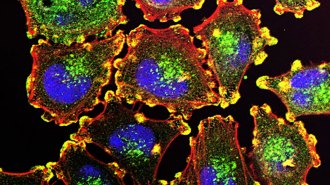 Health & Medicine
Health & Medicine50 years ago, cancer vaccines were a dream
Researchers are now prodding the immune system to fight cancer, reviving the longtime dream of creating cancer vaccines.
-
 Science & Society
Science & SocietyCan neighborhood outreach reduce inner-city gun violence in the U.S.?
While mass shootings grab U.S. headlines, the steady scourge of inner-city gun violence gets less attention — and fewer solutions.
By Bruce Bower -
 Archaeology
ArchaeologyA toe bone hints that Neandertals used eagle talons as jewelry
An ancient eagle toe bone elevates the case for the use of symbolic bird-of-prey pendants among Neandertals, researchers say.
By Bruce Bower -
 Health & Medicine
Health & MedicineNew details on immune system ‘amnesia’ show how measles causes long-term damage
Measles wipes the memories of immune cells in the body.
-
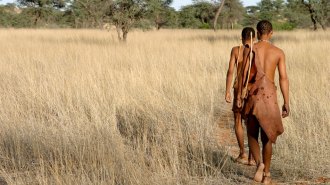 Humans
HumansHumans’ maternal ancestors may have arisen 200,000 years ago in southern Africa
New DNA findings on humankind’s maternal roots don’t offer a complete picture of how and when Homo sapiens emerged.
By Bruce Bower -
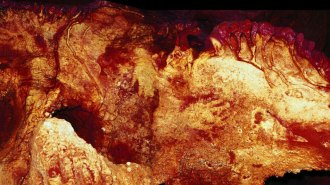 Humans
HumansDating questions challenge whether Neandertals drew Spanish cave art
A method used to date cave paintings in Spain may have overestimated the art’s age by thousands of years, putting its creation after Neandertal times.
By Bruce Bower -
 Humans
HumansQuarrying stone for Easter Island statues made soil more fertile for farming
Easter Island’s Polynesian society grew crops in soil made especially fertile by the quarrying of rock for large, humanlike statues, a study suggests.
By Bruce Bower -
 Science & Society
Science & SocietyBias in a common health care algorithm disproportionately hurts black patients
A machine-learning program that uses past medical costs to identify patients for extra care favors white patients over black patients, a study finds.
By Sujata Gupta -
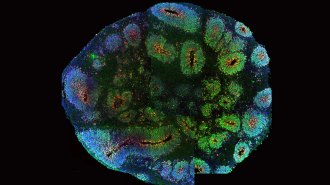 Neuroscience
NeuroscienceLab-grown organoids are more stressed-out than actual brain cells
Compared with real brain tissue, organoids show big differences.
-
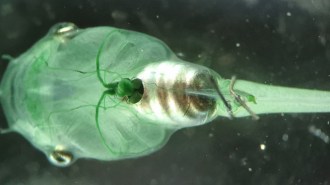 Health & Medicine
Health & MedicineAlgae inside blood vessels could act as oxygen factories
Two types of light-responsive algae make oxygen inside tadpoles’ blood vessels.
-
 Health & Medicine
Health & MedicineProzac proves no better than a placebo in treating kids with autism
In a small clinical trial, drugs called selective serotonin reuptake inhibitors didn’t ease obsessive-compulsive symptoms in children with autism.
-
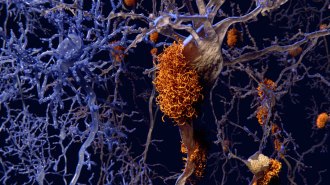 Neuroscience
NeuroscienceAlzheimer’s may scramble metabolism’s connection to sleep
Mice designed to have brain changes that mimic Alzheimer’s disease have altered reactions to blood sugar changes.